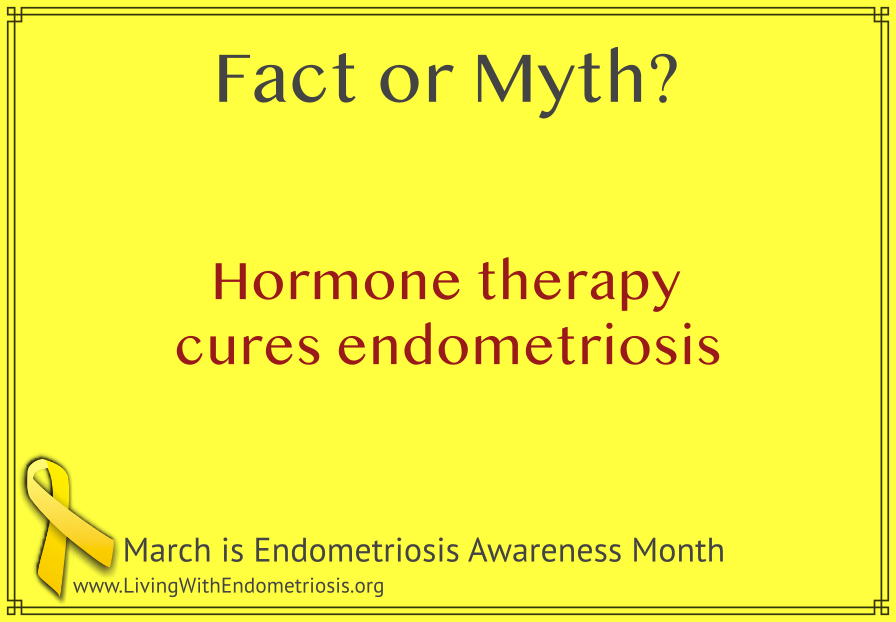Fact or Myth? “Hormone therapy cures endometriosis.”
MYTH!
endometriosis.org writes:
“Synthetic hormonal drugs like the pill, Provera, Danazol and Zoladex have been used for many years to ‘treat’ endometriosis. However, these hormonal treatments do not have any long-term effect on the disease itself. They do temporarily suppress (quieten) the symptoms, but only while the drugs are being taken. Once use of the drugs ceases, symptoms more often than not return.
This means that hormonal treatments do not have a role in treating (eradicating) endometriosis. If eradication of the disease is desired, surgery performed by a gynaecologist with extensive knowledge and experience of the specialised techniques used for endometriosis is the only effective medical treatment.â€
The Center For Endometriosis Care (CEC) writes:
“There is NO evidence that women treated with these agents have their endometriosis cured. On the contrary, there is ample evidence that most women have a prompt return of symptoms after they discontinue the drug. Menopause is a clinical situation which can be quite similar to the state induced by Lupron or Synarel treatment. When you consider that women who still have implants of endometriosis in their pelvis after menopause are very likely to have problems when postmenopausal hormone therapy is begun, it is hard to understand why anyone would reasonably expect a long-term cure from creating a state of extreme hypoestrogenism (lack of estrogen). In truth, if the implants are present, they can respond to stimulation. There has never been a medication that will cure the disease.†[See also Dr. Albee on suppressive medications and Dr. Albee on suppressing endo with birth control pills].
ICER (Institute for Clinical and Economic Review)‘s 2018 report on Elagolix: they “voted unanimously that the evidence was not adequate to distinguish the net health benefit of elagolix from that of treatment with either a GnRH agonist (leuprorelin acetate) or a hormonal contraceptive (depot medroxyprogesterone), due to limited and mixed evidence on clinical effectiveness and potential risks.
“They also noted the uncertainty around the therapy’s long-term side effects and clinical benefit, as elagolix use was limited to 6-12 months in clinical trials yet is intended to treat a chronic and disabling condition.
“While elagolix appears to offer short-term clinical benefits in terms of reduced pain and improved quality of life for women living with endometriosis, evidence is not yet sufficient to rule out the possibility that this therapy may pose long-term safety risks for patients,†noted Dan Ollendorf, PhD, ICER’s Chief Scientific Officer.â€
You can find this and other myths here.

Related Articles
No user responded in this post